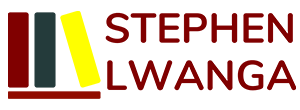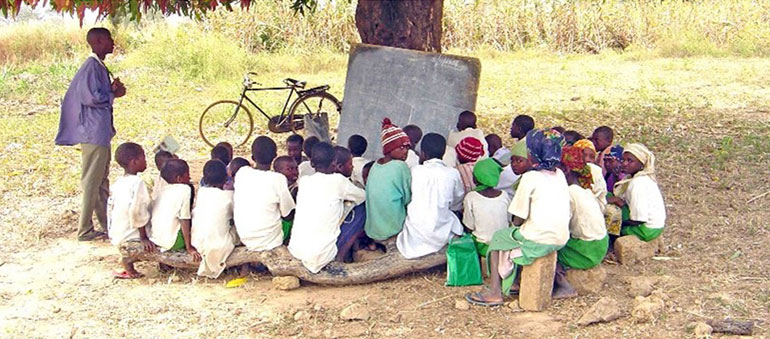Welcome to the Fork in the Road Blog: Reflections on Life, musings based on my perception of life, spanning decades of active life. This episode – Education – muses over formal and informal acquisition of knowledge and skills.
Education conjures thoughts of innovation and creativity. Education can be formal or informal. It can be a process or an outcome. As a process it facilitates learning or the acquisition of knowledge, skills, values, morals, beliefs, habits, and personal development.
We live in a changing world, but the educational system of, say, 40, 50 years ago was not unidirectional nor pitched strictly towards passing examinations. Instead, it was aimed at building an individual who was intellectually, socially, and practically developed. Acquiring leadership skills was also always part of the process.
A well-rounded education isn’t solely about the subjects studied. It’s about the skills learned such as problem solving or goal setting. These key skills should remain with us long after we’ve forgotten what we learned in classes at school. A good education is learning the tools that will allow us to continuously evolve and train our minds in the assimilation of ideas.

How often, as parents, have we “guided” our children into professions of our choosing rather than allowing the children to decide what they want or what they feel they can do. There are benefits to career guidance. It’s essential that while children are guided into a career path, they should be allowed to make their own choice.
I am musing over educational systems, and, on the aspirations, milestones, and goals, we set ourselves as we undergo formal or informal learning. Family, guardians, or society can heavily influence these goals.
Academic achievements describe the levels to which individuals achieved their learning goals. It’s how a person has achieved both short and long-term goals. The term “academic achievement” has become a catchall phrase encompassing various student outcomes.
Academic achievements should most certainly be celebrated, but they should not be looked upon as though they indicate a person’s life-long achievements. Having a piece of paper that allows you to state you have a degree in a particular field is a mere academic achievement. It would be futile for a person to state that that piece of paper was their ‘goal’. Instead, it should be viewed as a steppingstone to the long-term goal. Educational steppingstones must be informed by career goals with the relevant life skills a person needs for livelihood, directly or indirectly.
Once qualified in a field, the document awarded to us is supposed to be proof that we’ve attained what we claim to have achieved. It certifies that we successfully completed our educational studies through a series of tests and grading. What it doesn’t do is to certify that we can do, have the skills to do, what we are supposed to do.
One may provocatively ask whether an academic certificate is necessary for a fulfilling life. It is not the be it all and end it all. It should not be the goal. Many young people are holding pieces of paper from academic institutions which they find useless as an employment placement tool and wonder what the certificate they received is useful for. The goal of education should never be about the piece of paper. It should be about obtaining skills to be productive.
Over the decades, our obsessive compulsions towards examination results have led us into production of cadres of questionable productivity. The educational syllabus has slowly and effectively weeded out oral tests, and scientific experimentations at the detriment of the students developing inquisitive and independent minds. Instead, these key factors are taken over by written examinations. Employers are looking for educated people with problem-solving skills, communication capability, and teamwork ability which are not acquired through examination-based curricula. Students should be empowered to own their progress while maximizing intellectual, social, inquisitive, and emotional growth.
Examination results have taken centre stage in the education system. Many educational systems do not include skilling in their curricula. Teachers are teaching towards tests and students spend time cramming for the tests. It does not matter whether what the students are being taught is in line with national development goals, what the teachers want are their students to pass the examinations they set them to do.
When you leave university, the skills acquired are not enough as you move into the working world and towards your goals. The piece of paper handed out by the academic institution on your graduation isn’t going to be enough for you to advance in life. Today, the job-seeking world is an incredibly competitive market and keeping afloat is a constant battle.
In school, we learn what is deemed ‘book learning.’ However, what we need when we leave school to adapt to the working world is ‘practical learning.’ It focuses on the developing aspects of being productive and not our academic achievements alone. The kind of education that informs the mind to be independent and have creative thinking skills. If both practical and book learning were taught in school, students would be better equipped to handle life’s challenges in healthy and responsible ways.
When a lawyer or a dentist decides to build a house, he/she does not engage lawyers or dentists to construct the building. By the time the building is completed several key professionals would have contributed to its existence. Surveyors may have been engaged to map out the land, architects to design the building, bankers to finance the venture, structural engineers to oversee the work of the bricklayers, stonemasons, carpenters, roofers, plumbers, electricians etc. Proven expertise, not glossy certificates, would be needed from each contributor to the successful completion of the project. The direct or indirect linkage of occupations is easily demonstratable.
Educational systems that focus on white collar jobs only, pushing every learner to go to university for an academic degree certificate, undermine national development let alone the lives of many of the learners. Artisanal training is an important component of societal development. Artisans are skilled craft workers who craft objects partly or entirely by hand. They make objects such as furniture, decorative art, household items, tools and implements etc. Some artisans reach a level of quality of their products that makes them artists irrespective of what they produce.
Expertise in artisanal work can be a useful fallback activity in retirement from white collar jobs as I said when musing over retirement.
UNICEF, the United Nation’s organization focusing on children, rightly emphasizes that every child has a right to learn and access quality services to fulfil their potential. This relates to formal and informal educational opportunities.
While UNICEF further declares that “Education enables gainful employment opportunities and empowers boys and girls to participate in decision-making to build a better future for themselves and their communities”, the key questions are:
- What quality of education can fulfil this goal?
- Under what structural facilities are pupils taught conducive to achieving the goal?
- What is the pupil/teacher ratio in the formal education setting?
- How well educated are the teachers for the different levels they teach?
- Is foundational education in line with the national economic and developmental goals?
These questions are applicable to almost all levels of education.
There is no end to education. Formal education may end by choice or by circumstances, but informal education is continuous throughout life. Most of the informal education is unintentional or unnoticed but it is the rock of our development. Think about it.
Thank you for being part of the Fork in the Road Blogs: Reflections on Life. Be sure to look out for the next episode when I will be writing about Work and Employment. If you gathered something useful, please feel free to share the blog. My books, Fork in the Road: Creating a future of value starting from where you are and A view round the bend. Setting goals for your life’s journey are available for purchase at Aristoc bookshops in Kampala, Uganda and online at Amazon. Leave comments and suggestions of topics to muse over.


Comments (4)
Milly Bainomugisha
Very well written! Our society would learn a lot from this piece.
Rtn Stephen
I hope so if they are ready to listen.
Enoka
Thank you for your thought provoking article.
In Uganda people are introduced by stating their academic qualifications. Doctor so and so, Engineer, Lawyer, Honourable etc. It’s not what you studied that is important, it’s what you did with that education and applied experience that defines you.
What M7 studied at university doesn’t define him. He is defined by his lived experience which made him a strategic thinker.
We now know M7 as the president but he didn’t go to school to qualify as a president.
We should be defined by what we have become which is a combination of education and experience rather than what we studied at the start of our lived experience.
Rtn Stephen
Tell them from the top of the mountain. Few will listen. The majority will stick to the egoistical titles.